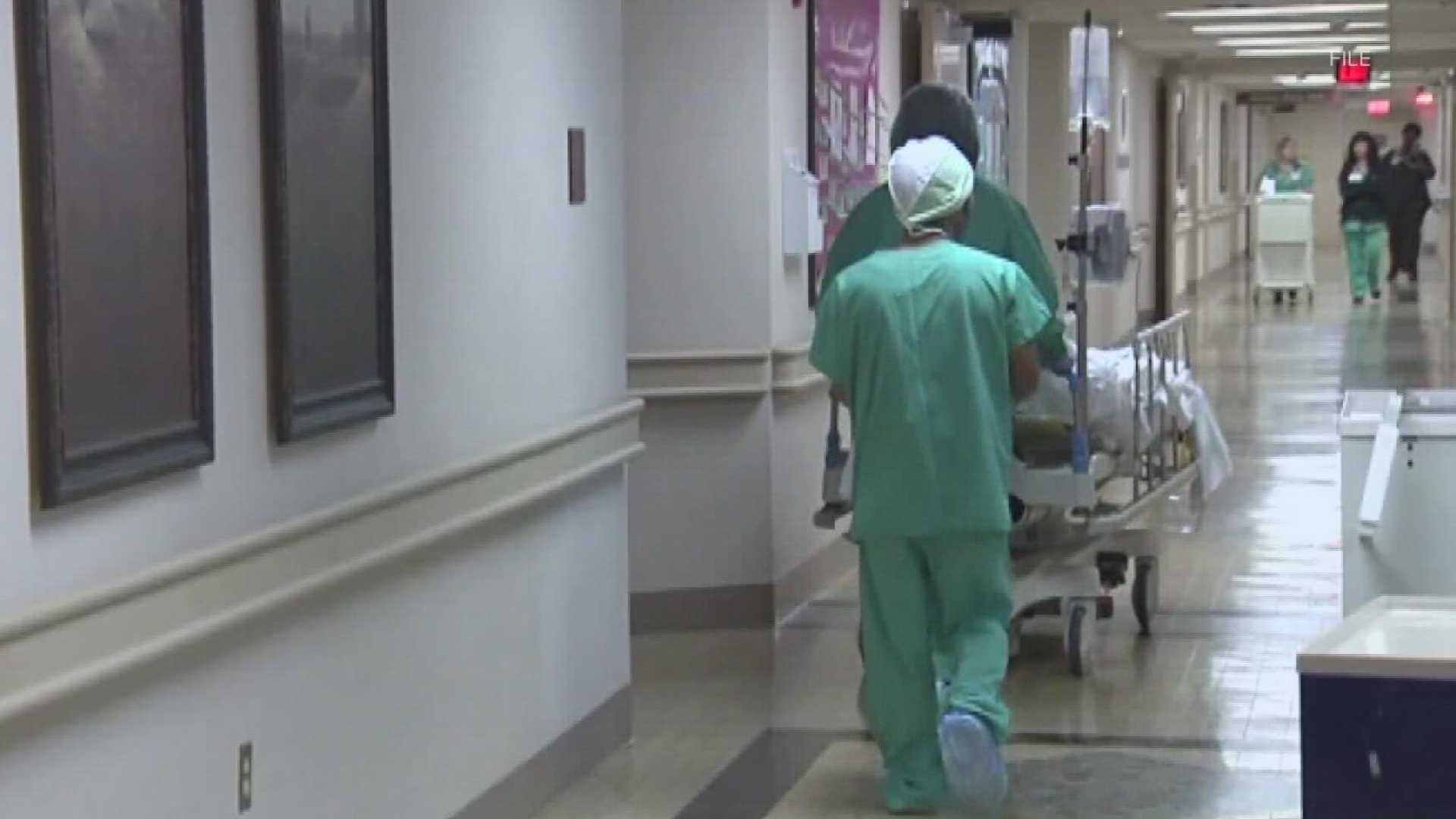AUGUSTA, Maine — EDITOR'S NOTE: The video above aired Oct. 19, 2021.
Health care worker shortages across Maine have led some hospitals to scale back services in recent weeks. This isn't a new issue in Maine, but the pandemic has only made it worse.
At 1 p.m. Monday, Gov. Janet Mills is set to announce new initiatives by her administration to encourage people to pursue health care jobs in Maine and strengthen the state’s health care workforce.
Mills will make the announcement at MaineGeneral Medical Center in Augusta. NEWS CENTER Maine will stream it live on our website, Facebook, YouTube, and mobile app.
According to a release from Mills' office, the initiatives will include "new programs that make it more affordable for people to become health care professionals and then easier to advance in their careers once they do."
The governor will be joined by:
- Chuck Hayes, president & CEO of MaineGeneral Health & MaineGeneral Medical Center
- Angela Westhoff, president and CEO of the Maine Health Care Association
- Darcy Shargo, CEO of the Maine Primary Care Association
- Jeanne Lambrew, commissioner of the Maine Department of Health and Human Services
- Laura Fortman, commissioner of the Maine Department of Labor
Central Maine Medical Center in Lewiston announced two weeks ago that it would scale back pediatric and trauma admissions due to a lack of staffing. York Hospital in Wells similarly announced last week that it would temporarily suspend emergency services for the same reason.
Eric Wellman, a professor of emergency medical services at Southern Maine Community College, recently told NEWS CENTER Maine they've seen enrollment in their EMS training programs drop by about 20% over the last decade.
Wellman said that's just part of the decline in EMS workers that has been hurting Maine's more rural areas first, but now is extending into cities. Reasons range from pay versus reward to workplace changes and more demands on emergency providers.
"What would it take for you to work nights, holidays, weekends on a rotating schedule, to be exposed to psychological trauma, to be exposed to death situations, and tend to be exposed to infectious disease and other things that can harm you, sleep deprivation?" Wellman asked.
It turns out, in some cases, the hourly wage for EMS workers in Maine is minimum wage.
"With EMT wages we see them range from anywhere from basic minimum wage, so no higher than what minimum wage is, and in some cases, you can get up as high as $20 to $23 an hour," he said, although he added that range is usually in paid towns that require employees to be both an EMT and a firefighter.
"Some of my neighbors in the north have talked about that, that people are leaving EMS altogether because they can get a job at Walmart for higher pay or McDonald’s or Walgreens," he said. "And these are good jobs in the sense that they pay a good wage, but they have substantially less responsibility for what is expected out of you, out of your 40-hour work week."
Wellman said he's been involved in conversations about battling the emergency worker shortage in ambulances and in hospitals for at least five years, and it's a problem that isn't going away.
He said the pandemic has only made the problem worse as workers are filling overtime shifts to cover for those who are sick or in quarantine or are choosing to retire early. Those EMS workers are also seeing sicker patients and more death than normal.
EDITOR'S NOTE: The video below is from Oct. 13, 2021.

